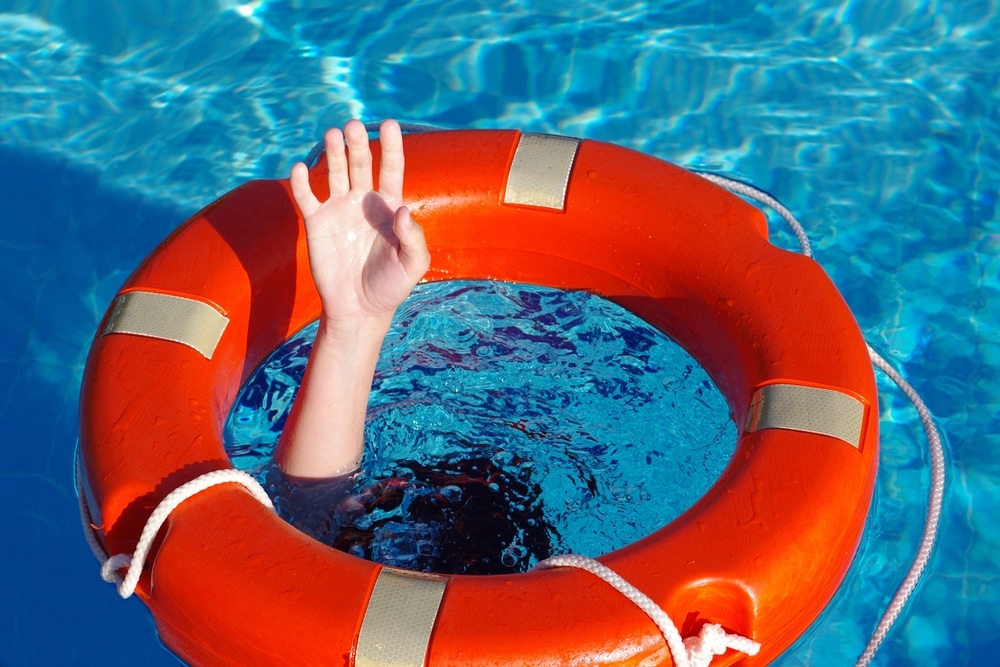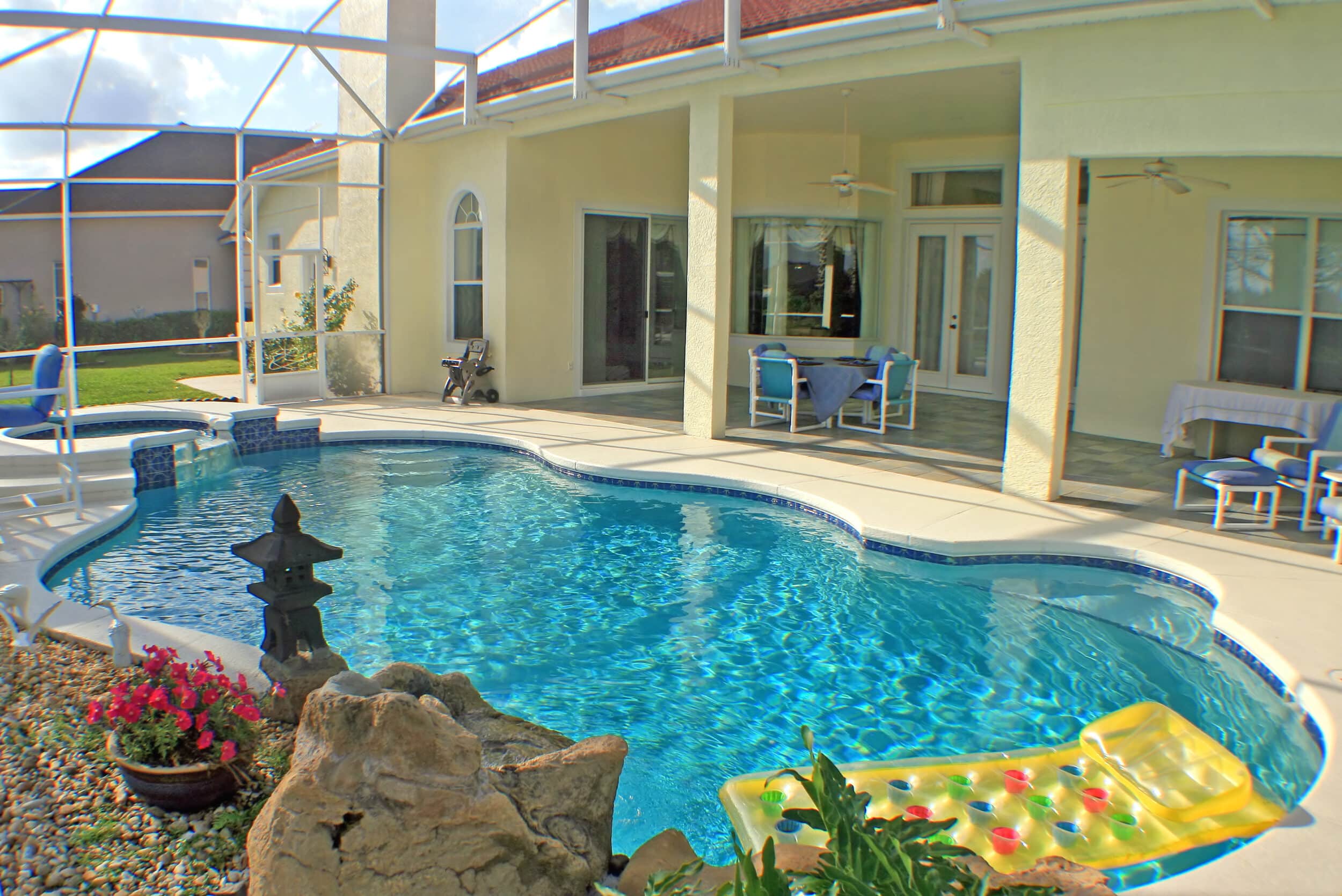
About 3,500 people, many of them children, drown each year in the United States. Many more suffer serious, irreversible injuries in near-drowning incidents.
Drowning is the leading cause of all accidental deaths among small children (one to four years of age), and the second leading cause among all children from five to 14 years of age, following only motor vehicle accidents.
If you or someone you know has suffered injury or death due to a drowning incident, Kline & Specter, PC can help. Our experienced drowning accident attorneys can provide a free case evaluation for potential lawsuits. We handle swimming pool accident cases in Pennsylvania, New Jersey, Delaware, and beyond.
Why Do Drowning Accidents Happen?
Drowning accidents can happen in various settings, from public and private swimming pools to natural bodies of water like lakes, ponds, rivers, and oceans. Other potential drowning sites include spas, hot tubs, and even bathtubs.
While fatalities are tragic, non-fatal drowning incidents can also have devastating effects. Brain damage typically begins within just four minutes of submersion, and about 20% of near-drowning victims suffer from severe and permanent neurological disabilities.

Negligence plays a part in many drownings and near-drowning cases. Common causes include:
- A lack of proper supervision
- Inadequate safety measures
- Hazardous conditions at the premises
- Lifeguards failing to maintain vigilance
- Poorly maintained swimming areas
- Defective pool equipment
Whether it’s inattention by a responsible party or unsafe conditions, many drownings and near-drowning incidents could have been avoided with the appropriate care and precautions.
What to Do After a Drowning or Near-Drowning Incident
In the aftermath of a drowning or near-drowning accident, you'll want to take immediate action for health and legal reasons. Here are the steps you should take:
- Document the Incident: Gather all available information about the incident. Take photos of the accident scene, note any witnesses, and write down details like the event's time, location, and circumstances. If possible, get video footage or reports from local authorities or lifeguards.
- Consult With an Attorney: Contact an experienced drowning accident attorney as soon as possible. They can guide you on your legal options, gather evidence before it's lost, and determine if negligence played a role. Kline & Specter, PC offers free consultations to help assess your case.
These steps will help secure the best medical and legal outcomes for the victim and their family.
Legal Rights of Victims and Families
If you or a loved one has been affected by a drowning or near-drowning incident, you might be able to seek compensation through a personal injury or wrongful death lawsuit. These claims can help cover:
- Medical Costs: This includes hospital bills, ongoing rehabilitation, and any necessary long-term care, especially for victims who suffer brain damage or other lasting injuries.
- Pain and Suffering: Victims and their families may be eligible for compensation for the emotional distress caused by the incident, including trauma, loss of enjoyment of life, or diminished quality of life.
- Lost Wages and Future Earnings: If the victim cannot return to work or their ability to earn a living is impacted, we can pursue compensation for lost income.
- Wrongful Death Claims: In fatal drowning cases, families may be entitled to damages covering funeral expenses, loss of companionship, and other related costs.
Kline & Specter, PC helps victims and families navigate the legal process, holding negligent parties accountable.
Drowning Accident Verdicts
Kline & Specter attorneys have won a number of major drowning lawsuits.
- The Weightman Case: Shanin Specter won a $24 million verdict for a three-year-old girl who suffered brain damage after she plunged into the deep end of a swimming pool at an Upper Darby, PA, apartment complex. Specter produced evidence that two lifeguards had been lying down on their backs, one with her eyes closed, when the incident occurred.
- The Griffin Case: The firm negotiated a seven-figure settlement in the death of a 15-year-old boy who drowned in a swimming pool at a hotel in Reading, PA. In that case, the lifeguard had her feet up on a desk and was reading when the tragedy occurred.
- The Slaughter Case: In a July 2004 trial, Tom Kline won a $6.6 million Philadelphia jury verdict for the family of Anthony Slaughter, an eight-year-old boy who drowned in an unattended swimming pool at a summer camp. There were two lifeguards at the pool, but one was on a break, and the other left to use the bathroom at the time of the incident. Anthony’s death occurred on the first day of camp.
- The McCoy Case: In a settlement announced in October 2009, Kline & Specter won a $5.12 million settlement for the estate of a 16-year-old boy who drowned after he was taken by a school supervisor on an unauthorized off-campus swimming outing.
Why Choose Kline & Specter?

Kline & Specter, PC is uniquely qualified to handle drowning and swimming pool injury cases, offering both legal and medical expertise. Our team consists of over 50 attorneys, including several who are also medical doctors. Founded by Tom Kline and Shanin Specter in 1995, the firm has achieved outstanding results, including hundreds of multi-million-dollar verdicts and settlements.
Based in Philadelphia and serving clients across Pennsylvania, New Jersey, Delaware, and nationwide, Kline & Specter is recognized as a powerhouse in personal injury law. They’ve been described as "one of the country’s leading personal injury firms" and have earned a reputation for winning significant, life-changing outcomes for their clients. Their combination of legal skills and medical knowledge allows them to represent those impacted by drowning incidents and provide top-tier advocacy and support.
Frequently Asked Questions
Who Can Be Held Liable in a Drowning or Near-Drowning Incident?
Liability can extend to several parties, including the property owner, lifeguards on duty, pool maintenance companies, or other responsible individuals. If a public or private pool lacked proper safety measures or wasn’t adequately supervised, these parties could be held accountable for negligence.
How Do You Prove Negligence in a Drowning or Swimming Pool Injury Case?
Proving negligence involves showing that the responsible party failed to uphold a duty of care, such as providing supervision, enforcing safety rules, or maintaining pool equipment. This could include evidence of lifeguard inattention, unsafe pool conditions, or lack of safety barriers, which could all contribute to the incident.
Can I File a Claim if the Drowning Incident Happened on Private Property?
Yes, you can file a claim if a drowning occurred on private property. Property owners still have a legal responsibility to maintain safe conditions for visitors, which includes providing appropriate pool safety measures, like fences or supervision. If they fail to do so and an accident occurs, they may be held liable for negligence.
How Quickly Can Brain Damage Occur After Submersion in Water?
Brain damage can begin within just four minutes of oxygen deprivation. When someone is submerged, the brain is deprived of oxygen, leading to hypoxic or anoxic injury.
The longer the brain is without oxygen, the worse the damage. Even if the person is revived, a lack of prompt rescue and medical attention can result in permanent neurological impairments such as memory loss, motor skill deficits, or cognitive decline.
Are Public Pools Required To Have Certified Lifeguards on Duty at All Times?
In most states, public pools must have certified lifeguards present whenever the facility is open to swimmers. These lifeguards are trained in rescue techniques, CPR, and first aid. Requirements vary by state and municipality, but failure to provide adequate supervision can be considered negligence, especially if it contributes to an injury or drowning.
Even when lifeguards are present, they must remain attentive and follow safety protocols at all times. If an incident occurs due to inattentive or absent lifeguards, the facility and its management may face legal liability for failing to meet mandated safety standards.
Can Defective Pool Equipment Be a Cause for Legal Action in a Drowning Case?
Yes. If defective pool equipment — such as broken ladders, faulty drain covers, malfunctioning alarms, or inadequate lighting — contributes to a drowning or injury, victims may have grounds for legal action. Product manufacturers, installers, or maintenance providers could be held liable under product liability or negligence claims.
Say a defective pool drain with excessive suction can trap a swimmer underwater, creating a dangerous and preventable hazard. In such cases, an attorney can investigate whether the defect stemmed from poor design, manufacturing errors, or a lack of proper maintenance. They can then pursue compensation for resulting injuries or wrongful death.
What Safety Measures Should Be in Place at a Private Swimming Pool?
Private pool owners are legally required to maintain safe conditions, such as:
- Having a secure fence with a self-latching gate around the pool
- Using safety covers
- Having functioning pool alarms
- Installing proper lighting
- Keeping the pool area free of hazards
- Supervising children at all times
Owners should also post safety rules, keep rescue equipment nearby, and maintain clean, chemically balanced water to avoid visibility issues and health hazards.
These precautions protect guests and reduce the risk of legal liability if a drowning or near-drowning incident occurs on the property.
Is a Property Owner Responsible if a Drowning Occurs When the Victim Was Trespassing?
Property owners generally owe less of a duty of care to trespassers. However, there are exceptions, particularly for children under the “attractive nuisance” doctrine.
Swimming pools, especially when unfenced or unsecured, can attract children who may not understand the dangers. In such cases, the property owner may be liable for not taking reasonable steps to limit access.
For adult trespassers, liability is less likely unless the owner’s actions were willful, reckless, or created hidden dangers. An attorney can assess the circumstances to determine if legal action is possible despite the trespassing status.
Can a Drowning Lawsuit Be Filed if the Victim Was Partially at Fault?
Yes, but the outcome depends on state laws regarding comparative or contributory negligence. In Pennsylvania, for example, the modified comparative negligence rule applies. This means a victim can recover damages if they were less than 51% at fault. If they are found partially responsible (e.g., ignoring posted safety rules), their compensation may decrease in proportion to their share of fault.
Even if partial fault exists, factors like unsafe conditions, negligent supervision, or defective equipment may still make other parties liable. An attorney can evaluate the facts and determine potential compensation under applicable negligence laws.
Get Expert Legal Help for Drowning and Swimming Pool Accidents
Kline & Specter’s experienced attorneys will fight for the justice and compensation you deserve. Serving clients in Pennsylvania, New Jersey, Delaware, New York, and nationwide, we offer personalized legal support. Contact us at 800-243-1100 to speak with a drowning accident lawyer today and get a free case evaluation.
Click here for more facts about drowning incidents: CDC


